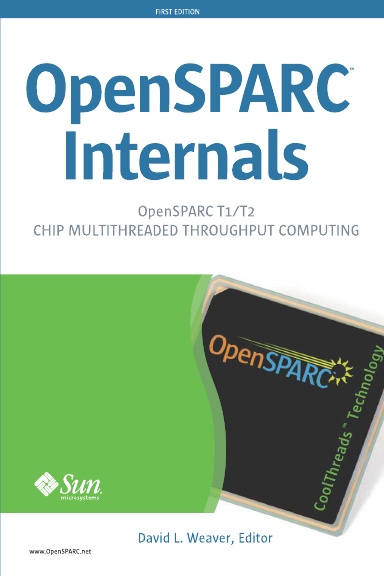I'm presenting at the Silicon Valley OpenSolaris Users Group on Thursday evening. I was only asked today, so I'm putting together some slides this evening on "Multicore Application Programming". The talk is going to be a relatively high level presentation on writing parallel applications, and how the advent of multicore or CMT processors changes the dynamics.
Tuesday, February 23, 2010
Monday, February 15, 2010
Bitten by inlining (again)
So this relatively straight-forward looking code fails to compile without optimisation:
#include <stdio.h>
inline void f1()
{
printf("In f1\n");
}
inline void f2()
{
printf("In f2\n");
f1();
}
void main()
{
printf("In main\n");
f2();
}
Here's the linker error when compiled without optimisation:
% cc inline.c Undefined first referenced symbol in file f2 inline.o ld: fatal: Symbol referencing errors. No output written to a.out
At low optimisation levels the compiler does not inline these functions, but because they are declared as inline functions the compiler does not generate function bodies for them - hence the linker error. To make the compiler generate the function bodies it is necessary to also declare them to be extern (this places them in every compilation unit, but the linker drops the duplicates). This can either be done by declaring them to be extern inline or by adding a second prototype. Both approaches are shown below:
#include <stdio.h>
extern inline void f1()
{
printf("In f1\n");
}
inline void f2()
{
printf("In f2\n");
f1();
}
extern void f2();
void main()
{
printf("In main\n");
f2();
}
It might be tempting to copy the entire function body into a support file:
#include <stdio.h>
void f1()
{
printf("In duplicate f1\n");
}
void f2()
{
printf("In duplicate f2\n");
f1();
}
This is a bad idea, as you might gather from the deliberate difference I've made to the source code. Now you get different code depending on whether the compiler chooses to inline the functions or not. You can demonstrate this by compiling with and without optimisation, but this only forces the issue to appear. The compiler is free to choose whether to honour the inline directive or not, so the functions selected for inlining could vary from build to build. Here's a demonstration of the issue:
% cc -O inline.c inline2.c inline.c: inline2.c: % ./a.out In main In f2 In f1 % cc inline.c inline2.c inline.c: inline2.c: % ./a.out In main In duplicate f2 In duplicate f1
Douglas Walls goes into plenty of detail on the situation with inlining on his blog.
Thursday, February 4, 2010
A very British computer
Couple more articles from the BBC, the Manchester Baby, and EDSAC at Cambridge.
I find it appropriate that one of the first commercial computers was used for ordering supplies for tea shops.
Wednesday, February 3, 2010
Little book of semaphores
Interesting read that demonstrates that there's much more to semaphores than might be expected.
Tuesday, February 2, 2010
BBC articles on British computer pioneers
The BBC are running a week-long series of articles on the history of British computing. The first is on GCHQ, the second is on Colossus at Bletchley.
Although the articles are interesting, I'm slightly dubious about some of the claims "It was not until the 1990s that general purpose machines could match Oedipus for searching through a database and finding a particular term, said Prof Lavington."
The article contains an interesting link map of the people involved. The link map includes the NPL Ace Pilot. The NPL is the National Physical Laboratory, and I was driven past on my way to school every day. Back then it looked like a science laboratory covered in odd shaped objects and brick buildings. Unfortunately the photos on the history page fail to capture this ramshackle nature.



